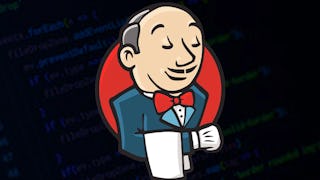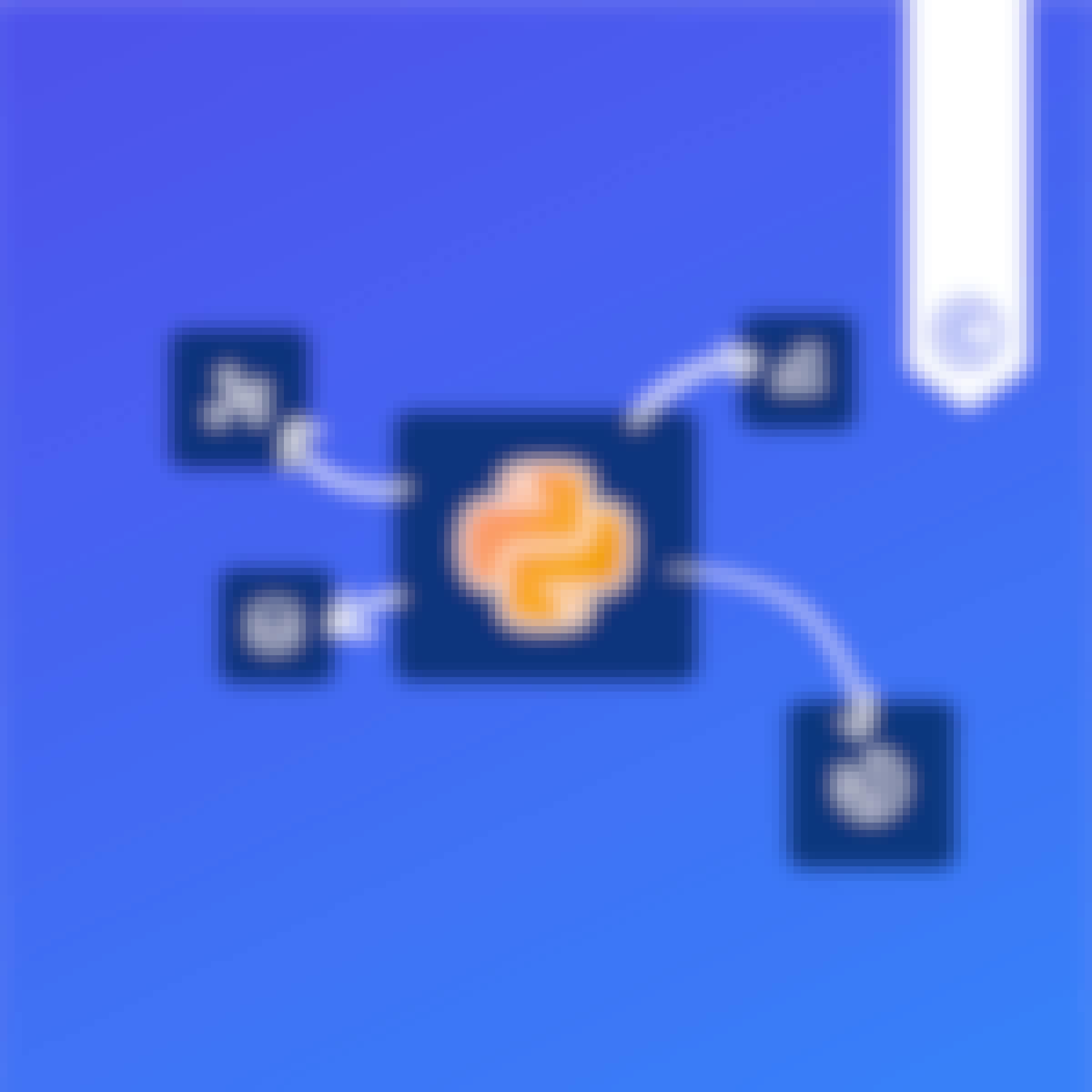Filter by
SubjectRequired
LanguageRequired
The language used throughout the course, in both instruction and assessments.
Learning ProductRequired
LevelRequired
DurationRequired
SkillsRequired
SubtitlesRequired
EducatorRequired
Explore the Git Course Catalog
 Status: NewStatus: Free Trial
Status: NewStatus: Free TrialSkills you'll gain: Lightweight Directory Access Protocols, Version Control, Git (Version Control System), Open Source Technology, Linux, Linux Administration, Systems Administration, User Accounts, Identity and Access Management, Authentications
 Status: NewStatus: Free Trial
Status: NewStatus: Free TrialSkills you'll gain: Jenkins, Ansible, Continuous Deployment, Application Deployment, Software Development Tools, Infrastructure as Code (IaC), Configuration Management, Security Testing, Dependency Analysis, Version Control
 Status: NewStatus: Free Trial
Status: NewStatus: Free TrialSkills you'll gain: Cloud-Native Computing, Kubernetes, CI/CD, DevOps, Application Performance Management, Git (Version Control System), Continuous Deployment, Application Deployment
 Status: Free Trial
Status: Free TrialSkills you'll gain: React Native, Apple Xcode, Version Control, iOS Development, Unix Commands, Swift Programming, User Interface and User Experience (UI/UX) Design, User Research, UI/UX Research, Git (Version Control System), Usability Testing, React.js, User Experience Design, Core Data (Software), GitHub, Interaction Design, Jest (JavaScript Testing Framework), Apple iOS, Data Structures, Javascript
 Status: NewStatus: Preview
Status: NewStatus: PreviewSimplilearn
Skills you'll gain: Jenkins, CI/CD, Continuous Integration, User Accounts, Software Configuration Management, Continuous Deployment, DevOps, Git (Version Control System), Application Deployment, Version Control, Role-Based Access Control (RBAC), Software Installation, System Configuration
 Status: NewStatus: Free Trial
Status: NewStatus: Free TrialSkills you'll gain: IntelliJ IDEA, Integrated Development Environments, Development Environment, Gradle, Java, Debugging, Version Control, Scripting, Scripting Languages, Databases, Relational Databases, Git (Version Control System), User Interface (UI)

Skills you'll gain: Azure DevOps, CI/CD, Continuous Integration, Continuous Delivery, DevOps, Agile Software Development, Agile Methodology, GitHub, Software Development Methodologies, Git (Version Control System), Test Automation, Agile Project Management, Continuous Deployment, Systems Development Life Cycle, Version Control, Test Planning, Sprint Planning, Scrum (Software Development), Release Management, Application Deployment
 Status: Free Trial
Status: Free TrialSkills you'll gain: Software Development Life Cycle, Bootstrap (Front-End Framework), Cloud-Native Computing, GitHub, Software Architecture, HTML and CSS, Webpack, React Redux, Web Development Tools, Figma (Design Software), User Centered Design, Agile Methodology, React.js, Responsive Web Design, Git (Version Control System), Version Control, Software Engineering, Software Design, User Interface and User Experience (UI/UX) Design, Professional Networking
 Status: NewStatus: Preview
Status: NewStatus: PreviewSkills you'll gain: GitHub, Version Control, Git (Version Control System), Jupyter, Collaborative Software, Development Environment, Python Programming, Programming Principles, Data Science, Data Analysis
 Status: Free Trial
Status: Free TrialLearnQuest
Skills you'll gain: Package and Software Management, Linux Administration, Linux, Linux Servers, File Management, Linux Commands, Version Control, System Monitoring, Virtual Private Networks (VPN), Public Key Infrastructure, Git (Version Control System), File Systems, User Accounts, Containerization, Docker (Software), Cloud Computing Architecture, Command-Line Interface, Cloud Computing, Virtualization, User Provisioning
 Status: Free Trial
Status: Free TrialSkills you'll gain: Jupyter, Data Analysis Software, Data Visualization Software, Statistical Programming, R Programming, Computer Programming Tools, Data Science, Data Visualization, GitHub, Machine Learning, Collaborative Software, Query Languages, Cloud API, Application Programming Interface (API), IBM Cloud, Restful API, Open Source Technology, Git (Version Control System), Data Management, Python Programming
 Status: Free Trial
Status: Free TrialSkills you'll gain: Serverless Computing, Software Development Life Cycle, Node.JS, Restful API, Cloud-Native Computing, OpenShift, Kubernetes, GitHub, Software Architecture, Web Development Tools, Microservices, CI/CD, Istio, Agile Methodology, Responsive Web Design, Docker (Software), API Design, Javascript, Professional Networking, Azure DevOps
Git learners also search
In summary, here are 10 of our most popular git courses
- Linux Foundation Certified System Administrator (LFCS): Unit 8: Pearson
- Continuous Integration and Continuous Deployment: Edureka
- Kubernetes From Basics to Guru: Unit 6: Pearson
- Meta iOS Developer: Meta
- Jenkins training for Beginners: Simplilearn
- IntelliJ IDEA with Project: EDUCBA
- Azure DevOps and Continuous Delivery with Git: Packt
- IBM Front-End Developer: IBM
- First Steps in Python with Jupyter Notebooks: Coursera
- Learning Linux for LFCA Certification: LearnQuest










